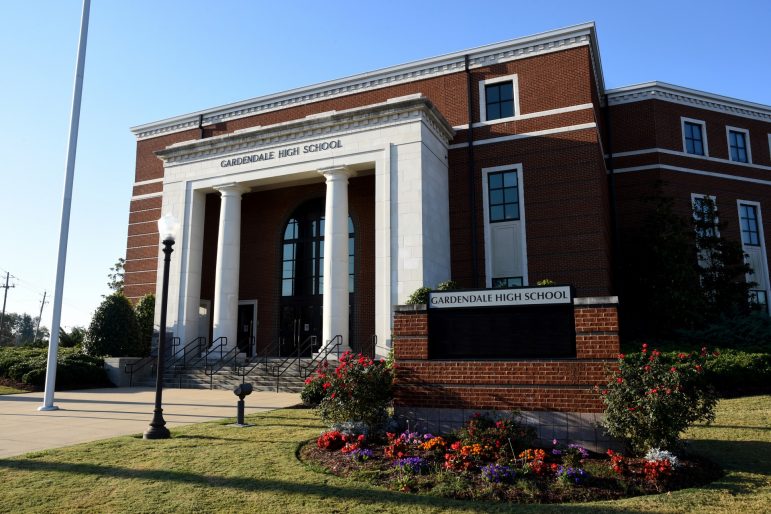Three years ago Gardendale residents agreed to help pay for their own school system, but they still don’t have one. After listening to five days of testimony, Federal Judge Madeline Haikala is considering whether Gardendale can pull out of the Jefferson County system and start its own without violating civil rights.
City leaders in Gardendale say they want their own school system to help hold on to young families. “They were leaving our city to go to cities that had their own school system,” Mayor Stan Hogeland says.
But there’s a hitch to pulling out and starting a new Gardendale system. A court ruled in 1965 that schools in Jefferson County can’t break away from the county system without court approval because changes could further separate blacks and whites, in this state where history is steeped in racial divide.
Mayor Hogeland says it’s not about race. “We all want whatever is best for our kids,” he says.
Back in 2013, Gardendale residents agreed to pay more property tax for a new independent school system. The majority-white city hired a superintendent and appointed an all-white school board. The school system doesn’t have any students. That’s because the court has not approved the new school system.
“If we had our school system with a local superintendent, and a local board that lives in town that you see when you go shopping or at church, maybe [sic] a little more accountability,” Hogeland says.
Gardendale came up with a plan to make its new system diverse: keep about 700 black students who live five miles from the city limits, and exclude mostly white communities outside of Gardendale in places like Mt. Olive.
Chris Gamble, a Mt. Olive father and businessman, has concerns about the future.
“When we take one over the other, we have to ask, is that fair? Are we both being treated equally?” Gamble says. “Can we not at least consider the people in Mt. Olive’s rights under the 14th Amendment, the equality?”
Gamble has two kids – a toddler and an elementary student. The child already in school would complete her education in Gardendale. He’s concerned the younger one would have to go elsewhere.
Students currently enrolled in the system, but not included in the new school zone, would be grandfathered into the Gardendale system for 13 years. The county would have to make other arrangements for educating the other students.
Craig Pouncey, the superintendent of Jefferson County Schools, has concerns too. If Gardendale forms a splinter school district, he says it will disrupt the system’s efforts to desegregate.
Right now, black students from across the county can transfer to Gardendale schools. With Gardendale out of the county system, Pouncey says, “We really don’t have another school to which they could transfer.”
In recent years, other predominately white cities in Jefferson County have formed their own school systems. Superintendent Pouncey says there is an even greater need now for diversity.
“Diversity actually builds strength in my opinion because it opens people’s minds to being a broader thinker,” he says.
But this court decision impacts more than just zone lines for school systems. It can make a difference to hundreds of students who transfer to Gardendale schools or attend part of the day for specialized classes.
Take DeVonte Kirkland. This 11th grader rides a bus 25 minutes every day from Center Point High in northeast Jefferson County to Gardendale where he takes an auto technician class.
Students hover around a car as DeVonte changes the oil.
He wants to attend college at Alabama State University. He’s studying auto tech so he can work on his own car when he get’s one. He’s also making friends – some who don’t look like him – some who come from other parts of the county.
“Sometimes we see each other out of school, and we talk in school too. Most of the students have been here like for a couple of minutes now, a long period of time,” Kirkland says. “I’m learning something new from them every day.”
Judge Madeline Haikala has not said when she’ll rule on the case. Whenever it happens, the ruling could have a significant effect on the future of education in Jefferson County.
NOTE: A version of this story was produced for NPR and aired during Morning Edition on December 19, 2016.

